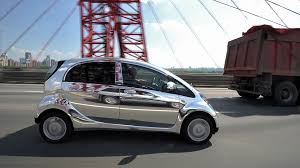Oil and gas companies are currently investing heavily in electric vehicle charging companies
 For decades, oil and gas companies and utilities have refused to accept electric vehicles as a given. Now oil and energy giants are becoming part of the “new fuels”industry.
For decades, oil and gas companies and utilities have refused to accept electric vehicles as a given. Now oil and energy giants are becoming part of the “new fuels”industry.
According to forecasts, more than 350 new models of electric vehicles will appear by 2025. Global demand for gasoline will peak around 2021, thanks to improved fuel efficiency. Wood Mackenzie predicts that infrastructure investment in the US will exceed $ 18 billion per year in equipment, installation, operation and services by 2030. China is expected to have three times more energy demand from electric vehicles by then.
Companies working with fossil fuels are ready to invest heavily in the development of infrastructure for millions of electric vehicles, which will appear on the market in the next few years. Although only 2.2% of the world’s cars are electric, a record 2 million electric cars were sold last year.
The figures are still small, for example, Shell’s $1 billion investment in renewable energy and electric vehicles represents only 4% of the company’s annual capital expenditure. According to Bloomberg New Energy Finance (BNEF), $ 334 billion was invested in global clean energy worldwide in 2017.
According to BNEF, the infrastructure for electric vehicles is constantly growing and developing, and each region has its own unique composition of players. In Europe, 79% of infrastructure is managed by utilities and oil companies. In the US, 62% of the market is driven by electric car operators. In China, equipment manufacturers control the majority.
The rapid development of electric mobility is also evidenced by the purchase of Royal Dutch Shell Greenlots, a startup that offers software and services for charging networks for electric vehicles. The British-Dutch oil giant says it will use Greenlot technology, which offers software to optimize battery charging and balancing power grids on a single platform to lay the Foundation of its electric vehicle business in North America. The company invests about $ 1 billion a year in such transactions, including the acquisition of 30,000 charging stations in Western Europe, as well as an investment of $ 31 million in the launch of charges for electric vehicles Ample in 2018.
Last year the French company Total signed a deal with G2mobility, which offers solutions for charging electric vehicles, as well as the transaction at $ 1.7 billion with Direct Energie, making it the largest retailer of electricity in France. Total wants to increase its “low-carbon energy assets” from 5% of the total to 20% by 2035. Most of Europe’s largest oil companies are now targeting renewable energy, electricity trading, energy storage, electricity retail, electric vehicle charging network management.
In Europe, the line between utilities and oil and gas companies is blurred. In the US, companies such as Chevron and ExxonMobil are just beginning to enter the territory of utilities. Last year, Chevron participated in a $ 240 million round for ChargePoint, a network of independent charging points worth $ 1.5 billion. The utility company American Electric Power and the German automaker Daimler invested together with the oil giant in charging stations.
The most active in the development of electric vehicles are utilities in the United States, many of which work directly with automotive companies. Pacific Gas and Electric, Southern California Edison, San Diego Gas & Electric and New Jersey’s PSE&G are partnering with automakers to offer perks and discounts for BMW, Nissan and other brands. California-based Pacific Gas and Electric, new York-based Consolidated Edison, the Southeast Duke Energy Company, and others, covering almost all States, are lobbying Congress to expand tax breaks for electric vehicles. Pacific Gas and Electric is actively investing in thousands of fast charging stations across the state.




